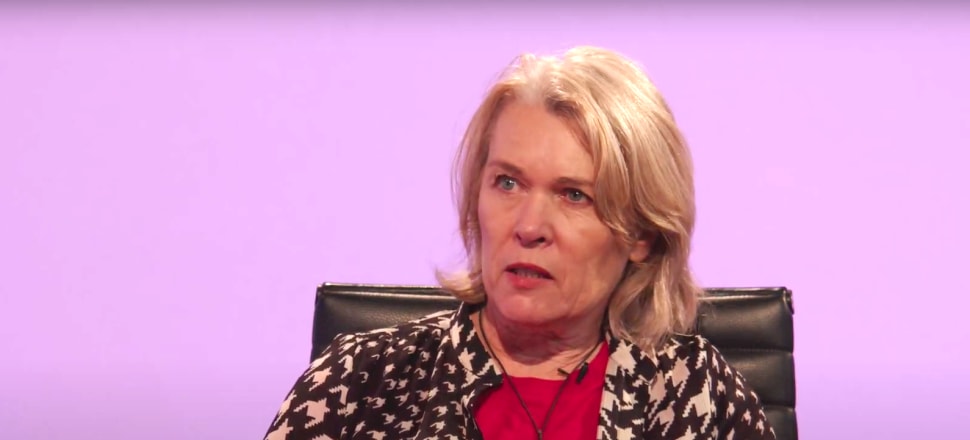
In this week's episode of VOTE2023, we talk to Labour MP for Taieri Ingrid Leary and TOP Dunedin candidate Dr Ben Peters on key issues including political representation, climate change, and tax
This series is made by politics students and aims to entertain and inform viewers about their potential representatives this election. Answers have been condensed for brevity. Click here to watch the full interview.
Ingrid Leary:
As the New Zealand Parliament’s Ambassador for Women Political Leaders, what are your thoughts on the Act Party’s alternative budget where they pledge to abolish key cultural ministries including the Ministry for Women?
We’ve got world-leading women’s representation and that has been through voluntary party quotas as well as MMP but there have also been lots of big strides and work to do about representation for other marginalised groups such as Pasifika or other ethnic groups. The representation is done strategically and through a conscious movement and those ministries help with a structural bias against minority groups. If we eliminate those ministries, then we take a massive step backwards around representation. I did hear Act deputy leader Brooke van Velden talking about unconscious bias and saying she didn’t think it was a problem because she hadn’t experienced it ... for those who haven’t experienced it, it may not seem important but when you’re in a marginalised group it’s really important that we have those safeguards and that includes the Human Rights Commission, which would be abolished under Act.
Read more: VOTE2023: Q&A with Winston Peters
What do you think are the biggest factors causing Labour’s poor polling?
It’s early days in the campaign and lots of people haven’t made up their mind. We need to get out and have conversations on the doorsteps and on the phones. Those are the things that will win an election. There is a media narrative that has changed over time since my time as a journalist. I think the media’s under enormous pressure to produce news very quickly and to do lots of different roles…there’s a tendency for the framing of a story to happen before the journalist goes out, rather than with an open mind. I would urge everybody to make sure they get multiple news sources.
You’ve been an advocate for climate adaptation solutions for South Dunedin – what role do you think local government plays in dealing with the climate crisis?
We need to have a big scale of ambition around climate change adaptation. The opportunity we have in South Dunedin is instead of relying on ratepayers to fund what could be possible, is to have local government and central government working together to create a pilot scheme where South Dunedin could be the pilot for the whole of New Zealand or even the world in terms of how we adapt to sea level rise and also the low water table.

What do you see as the main problems with National’s tax policy?
The number one problem is they’re not costed so they can’t afford them and that’s an issue because when you can’t afford something what it means is you’ve got to pay from somewhere else. Traditionally National has cut services to health and education, or in 2010 they raised GST from 12.5 percent to 15 percent to pay for a deficit….the tax cuts might look attractive but they’re not costed.
What is Labour doing to appeal to younger voters such as students?
I know that what’s on young people’s minds is climate change and mental health, and the left-leaning parties are the only parties in my view that take climate change seriously. With the National Party we hear a lot of lip service but they’ve actually voted against every proposal that we’ve introduced apart from Carbon Zero legislation. With Act, I don’t even hear lip service.
Ben Peters:
What are TOP’s highest-priority policies?
Tax policy introducing a $15,000 tax-free threshold, a shift in the tax brackets so they can keep up with inflation, a land value tax to offset the tax savings from income, wipe MSD debt and bring in a disability financial package
Teal Card to support under 30s: free dental care, free GP visits, universal healthcare, $1500 towards e-transport, $5000 savings boost + civics education
TOP has argued for empowering farmers to be biodiversity champions…..what will this entail?
A system of biodiversity credits where farmers who are doing really well with that can build up their credits and the money generated through that system also gets reinvested back into farms.
TOP has proposed a tax-free threshold of $15,000, what benefit will this bring to students?
Your student allowance would no longer be taxed – that’s approximately a $1500 increase annually on what you’ll take home.
What would TOP focus on when it comes to gene modification?
Our current legislation focuses on the time at which particular technology was invented and then that determines whether we can or can’t use it. [We want to see a shift from] old technology is allowed, new technology isn’t and start asking the question, what change have you made to this particular organism? So maybe you’ve made a tomato that’s a different colour, that’s a pretty minor tweak ... bigger changes we would still regulate in the same way, [for example] if you’re taking genes from fish and putting them into tomatoes.
What is TOP’s stance on co-governance?
We agree that [Te Tiriti] is a founding document for NZ, so that’s really core and central. Co-governance is really important but it needs to be done at a local level ... between mana whenua of that particular region, with regional councils.
What separates TOP from the Green Party?
We want to work collaboratively with either Labour or National and what that means is regardless of the government of the day, we’re able to have quite a big impact. The Green Party is staunchly opposed to working with National.







